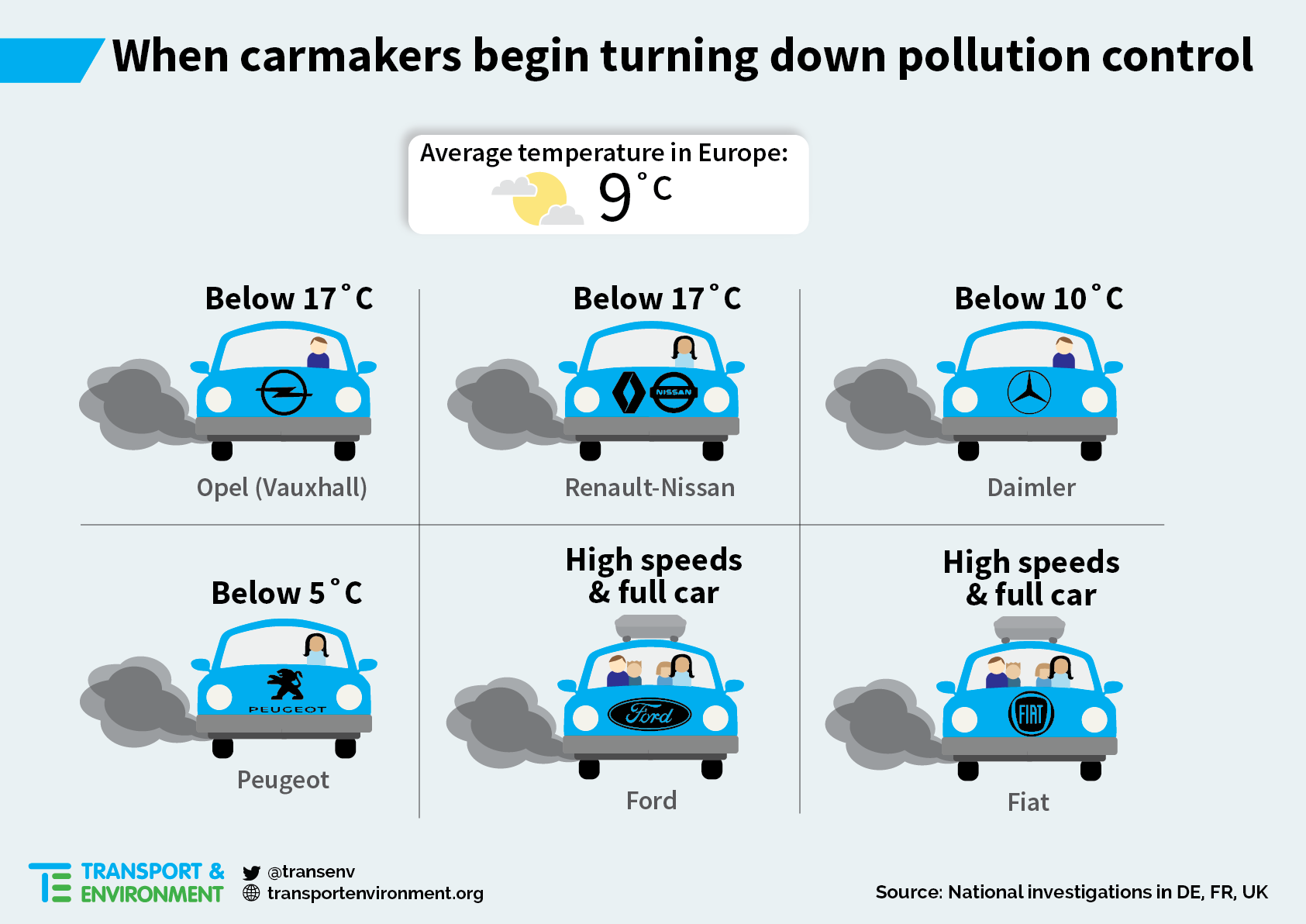
Interested in this kind of news?
Receive them directly in your inbox. Delivered once a week.
The government probes found but ignored a ‘thermal window’ defeat device that switches off pollution control technology in low ambient temperatures, according to an analysis by the International Council on Clean Transportation (ICCT), which tipped off the US EPA about Volkswagen’s cheating last year. A second device, a ‘hot restart’ defeat device, whereby the tested cars have higher emissions after warm engine restarts (compared to a cold one required by EU law), also went unpunished. An alleged third device saw some Fiat models switch off the exhaust treatment system two minutes after the lab test was completed. [1]
Julia Poliscanova, air quality manager at T&E, said: “The discovery in Europe of three new defeat devices, on top of Volkswagen’s, must now be followed by more comprehensive investigations to force carmakers to come clean on their emission strategies. Binding and strict EU guidelines for national testing authorities on the use of exemptions for defeat devices are also needed. In the US emissions control is allowed to be reduced only in temperatures below -3°C.”
Switching off the exhaust in normal driving is outlawed by EU regulations. Industry claims it is using a loophole to exempt defeat devices used to protect an engine from severe damage or accident, not to protect individual components or address durability as applied today, according to a legal analysis carried out for the NGO Deutsche Umwelthilfe. [2] It compared unjustified “switch-off” defeat devices to reducing braking effectiveness or weakening door locking systems in cold temperatures, neither of which would be acceptable. T&E said the widespread switch off of aftertreatment needs to be stopped by approval authorities and, if necessary, tested in court.
Julia Poliscanova concluded: “The national investigations illustrate the painful reality of national authorities not doing their job properly. EU oversight to ensure a uniform application of the law and quality across Europe is urgently needed to protect drivers and the environment. The current race to the bottom among national regulators that compete for testing income and support for national manufacturers must stop now.”
Notes to editors:
[1] Bild am Sonntag, Auch Fiat betrügt mit illegaler Software, 22 May 2016
https://www.bild.de/bild-plus/geld/wirtschaft/abgas-skandal/auch-fiat-bet…
[2] Geulen & Klinger, Legal opinion on whether it is allowable to use switch-off devices in the emission control systems of passenger cars, compiled on behalf of the environmental body Deutsche Umwelthilfe, 22 March 2016.
Read more:


